Baldur’s Gate: Dark Alliance took players on an isometric hack-and-slash adventure when it launched in the early 2000s, followed by a sequel a few years later. Now, nearly 20 years after players first got their hands on that Dungeons & Dragons action RPG, third-person spiritual successor Dungeons & Dragons: Dark Alliance is here to usher in audiences new and old. We sat down with Tuque Games lead level designer Jean-Francois Champagne to chat about how this new adventure sets itself up as the next essential Dungeons & Dragons experience.
The Escapist: Tell me about yourself and Tuque Games. Why is Tuque the perfect team to make a four-player co-op action brawler based in the world of Dungeons & Dragons?
Jean-Francois Champagne: My name is Jean-Francois Champagne. I’m the lead level designer at Tuque Games, and I’ve been making games professionally for over 15 years. Tuque Games was a small independent studio that was recently acquired by Wizards of the Coast and has experienced incredible growth in the last two years.
The team has been carefully put together with an impressive mix of experienced developers on big-hitters and what we like to call all-star juniors. The skill and passion of this team is undeniable and most of the team, from programmers to designers to VFX artists, are huge D&D fans that understand the opportunity and responsibility of what making a D&D game represents.
What was a single aspect of Dark Alliance that the team sought to deliver on? In what ways did Tuque accomplish this goal?
Jean-Francois Champagne: We like to say that we’re trying to put players in that moment right after the DM says “roll for initiative,” which is why the game is fast-paced and showcases epic fights in all their brutal glory. We wanted to create an accessible yet very deep combat experience. The combat system is easy to understand at first, but very hard to master. We have what we call an Emergent Combat System where instead of pre-canned combos, every attack can be chained into almost any other attack once you’ve mastered the timing and inputs. You can then create your own combos and rain destruction with flair and style.
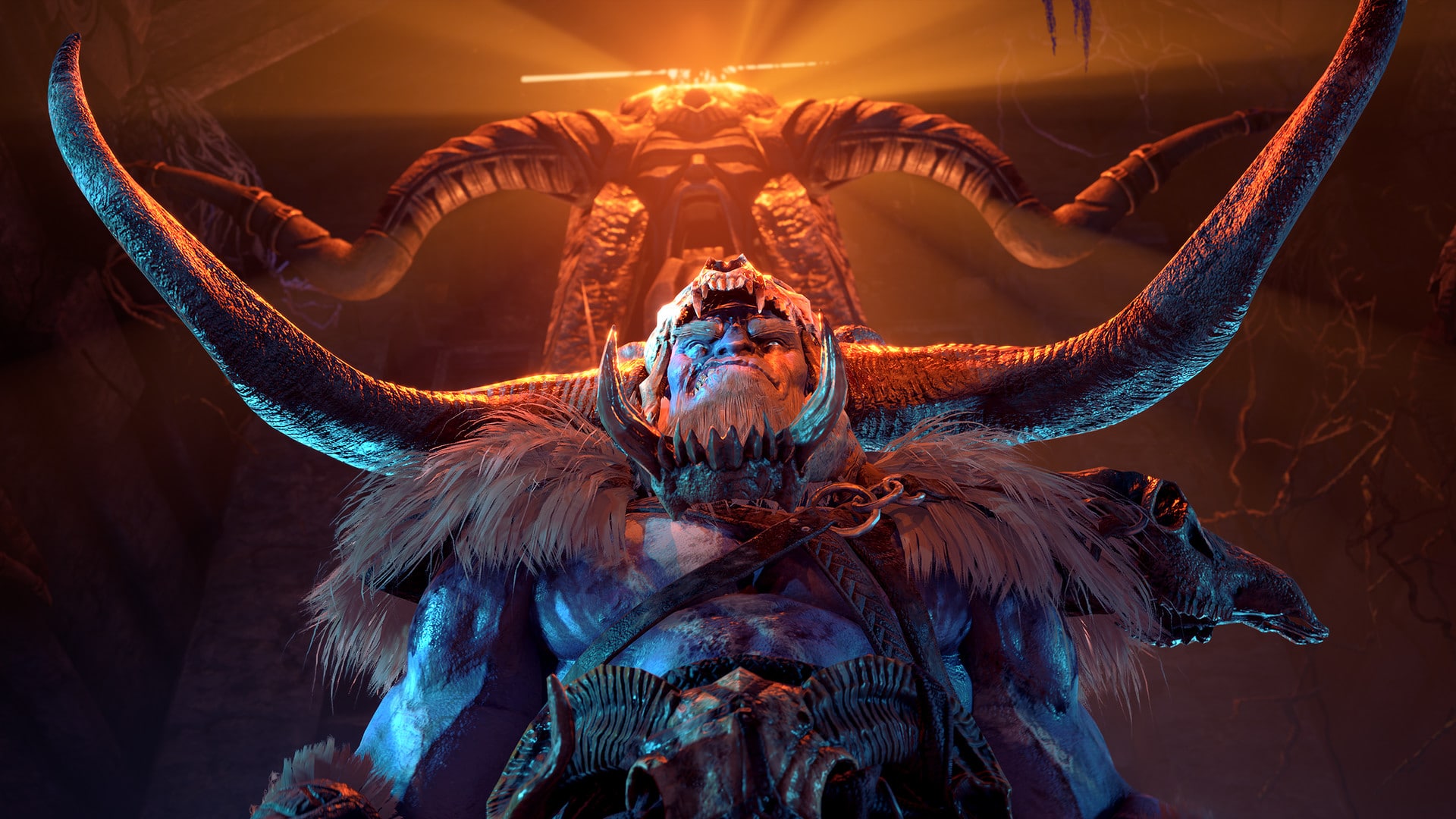
It sounds like players will have a lot of freedom to play missions in any order they please. With that in mind, how has story and character progression been implemented in Dark Alliance?
Jean-Francois Champagne: Every mission is focused on showcasing one family of monsters, as well as their role in the overarching story. A big part of the story is told through the banter between the characters as you play through the game. Character progression is about upgrading your character (their attributes, skills, feats, and moves) and also acquiring and upgrading gear. The player will need to master the combat system as well as their character’s specific fighting style.
How has Tuque incorporated and translated traditional D&D elements and gameplay into Dark Alliance?
Jean-Francois Champagne: We had to adapt to the more action-driven game we were making, but it was very important to us that people who know the pen-and-paper version of D&D still felt at home and recognized elements of that experience, even if they’ve been adapted for our game. One example is the Short Rest System. (Short and Long Rests are key party mechanics in the tabletop version.)
Instead of opting to create an automatic checkpoint that saves your progress through a mission, we instead give players the opportunity to use a Short Rest once they’ve completed a key encounter. If they do take a Short Rest, that becomes their new checkpoint and we refill their usables and gauges (HP, Stamina). If you decide to skip the Short Rest, you don’t refill anything and don’t save your progress, but you gain loot drop and loot quality bonuses. It’s a nice little risk/reward loop.
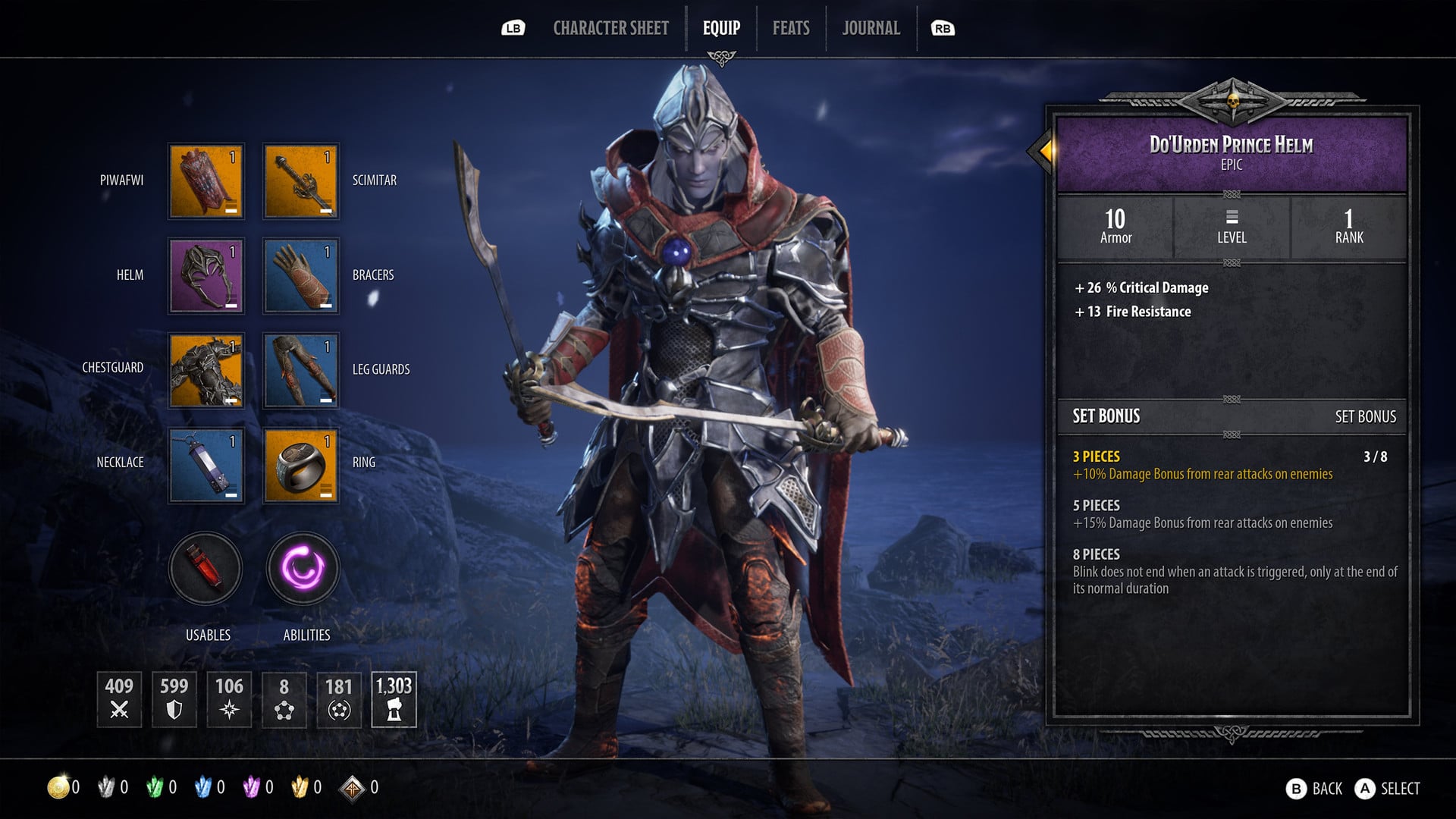
Can you walk me through Dark Alliance’s gameplay loop? What will players be doing in-between combat encounters and missions? In what ways will the Challenge Rating system make the game more difficult, and what rewards can players earn on higher difficulties?
Jean-Francois Champagne: Every mission starts and ends in the Base Camp. Players can upgrade their character, manage their gear, and select where they want to go next. The mission structure is open-ended, and players use a world map to select which challenge they want to tackle next. You go on a mission, defeat the boss or mini-boss, and come back to camp.
As you play, you get better at the game and your character grows more powerful and acquires better gear, which allows you to tackle missions at higher difficulties. Gear quality is tied to mission difficulty, so the only way to gear up companions with the best stuff is to play on higher difficulties, which you can tackle by mastering the combat system, acquiring new gear, or teaming up with friends.
Can you explain what RPG mechanics and systems Dark Alliance offers and how they work?
Jean-Francois Champagne: The character progression in Dark Alliance includes leveling up, upgrading attributes, unlocking new feats, new moves, and new special abilities. For gear progression, players obtain new gear by completing missions and exploring, selling what they don’t use, and upgrading what they like with the resources they find on their travels. Players can also unlock and upgrade various usable items, and everything is unlocked by the time you reach max level (20) and it becomes more of a tactical choice as you select which ability and usable to slot in for your next mission.
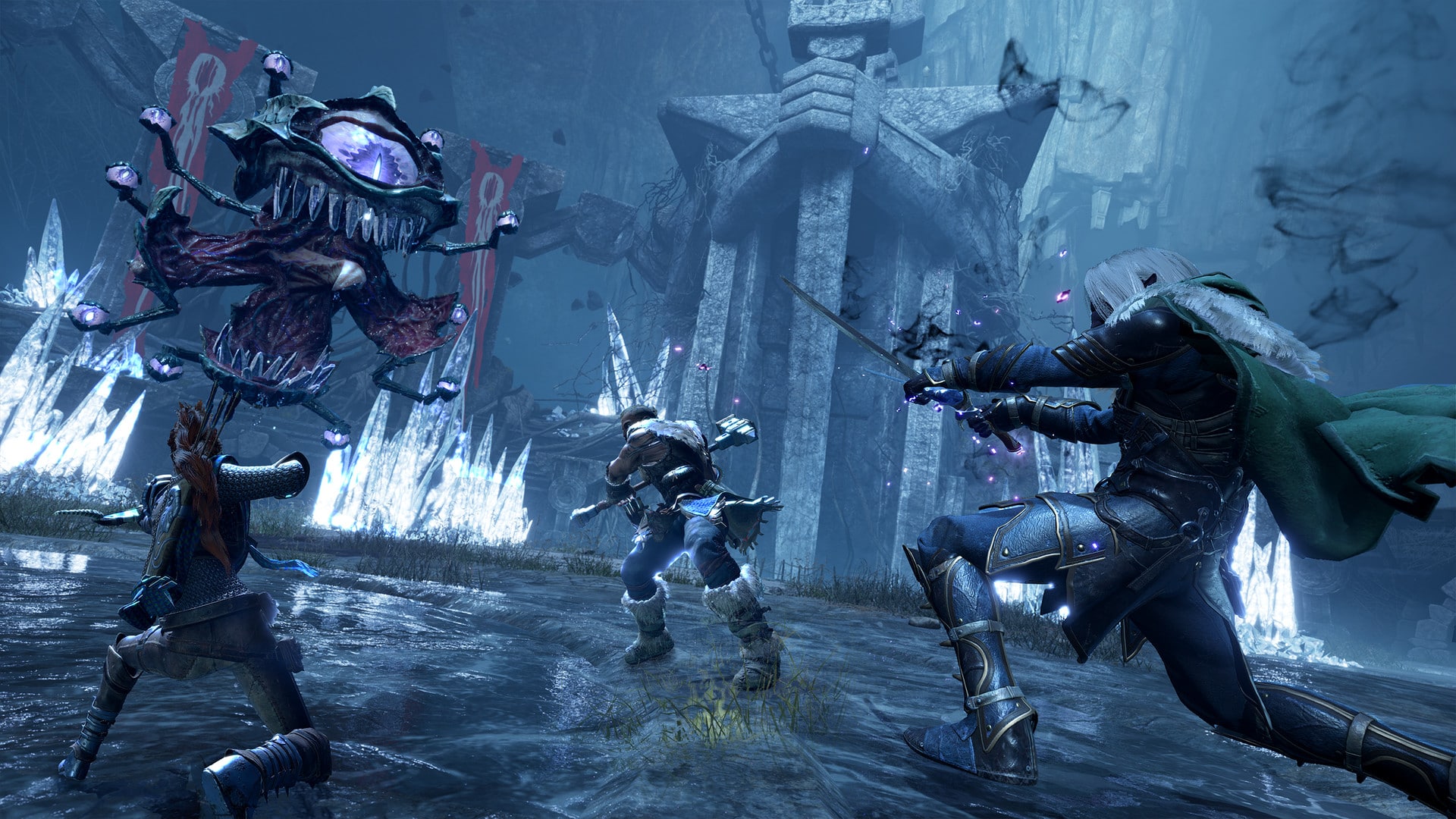
What are the major differences and similarities between Dungeons & Dragons: Dark Alliance and the Baldur’s Gate: Dark Alliance games from the 2000s?
Jean-Francois Champagne: Dark Alliance is a spiritual successor to the original games more than anything else. It has its own story and we made it to stand alone as its own co-op action brawler. The original Dark Alliance games brought new people to the world of Dungeons & Dragons, and we wanted to do the same with our game. For people who have played the original game or read the books from R.A. Salvatore, they will recognize the characters and feel familiar with the setting, though.
What sort of variety can we expect from each character’s 50+ combat abilities?
Jean-Francois Champagne: Each companion has his or her own combat style and abilities. They play very differently, especially on higher difficulties where strategy and tactical approach really matter. Support, defense, crowd control, what raw damage you deal, your focus — all of that will determine what role you might choose to take on in your party.
What can you tell us about the Echoes of the Blood War DLC? What will it add to the game to make it a worthy expansion?
Jean-Francois Champagne: Echoes of the Blood War offers a new storyline with its own set of missions. One of the biggest offerings of this DLC is a brand new playable character of the magic-using variety that is playable throughout the whole game.
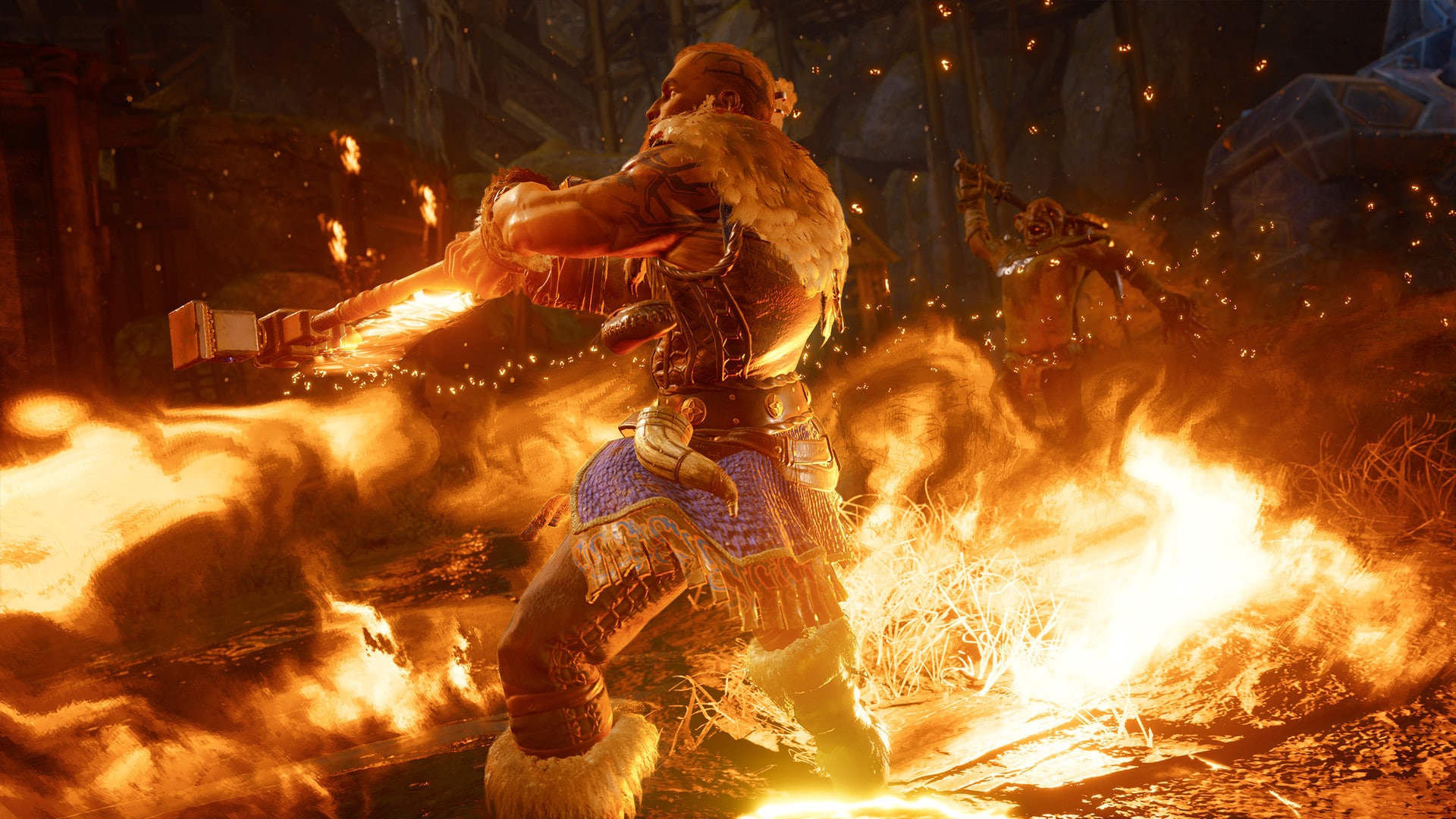
What else can you tell us about post-launch plans? Can you talk about any additional DLC or specific modes that Tuque would like to add?
Jean-Francois Champagne: We will be bringing two-player couch co-op to PS5, Xbox Series X|S, and PC hopefully with the first free DLC this summer. We’re investigating how to support two-player couch co-op on PS4 and Xbox One after that. We plan to add new levels of difficulty and possibly new difficulty mechanics as well.
With your recently announced partnership with Xbox, in what ways is Dark Alliance’s Xbox Game Pass deal beneficial to the game and its development?
Jean-Francois Champagne: There’s an undeniable morale boost that comes with such an endorsement. The biggest benefit is that it helps us reach even more players.
Why should fans of the old 2000s games or even Dungeons & Dragons in general check out Dark Alliance? Conversely, why should those who have no interest in D&D check it out?
Jean-Francois Champagne: One of our goals with Dark Alliance was to introduce D&D to players who might not be as familiar with it. Maybe someone grabs our game because the combat looks amazing and fun, discovers D&D, and through that experience becomes a lifelong D&D fan. For people who are already D&D players and fans, it’s a whole new way to experience a familiar cast of characters and get up close to epic monsters in a visceral way.
Dungeons & Dragons: Dark Alliance arrives on PC, PlayStation 4, PlayStation 5, Xbox One, and Xbox Series X | S on June 22, 2021 and will also be available on Xbox Game Pass.
This interview has been edited for clarity and brevity.

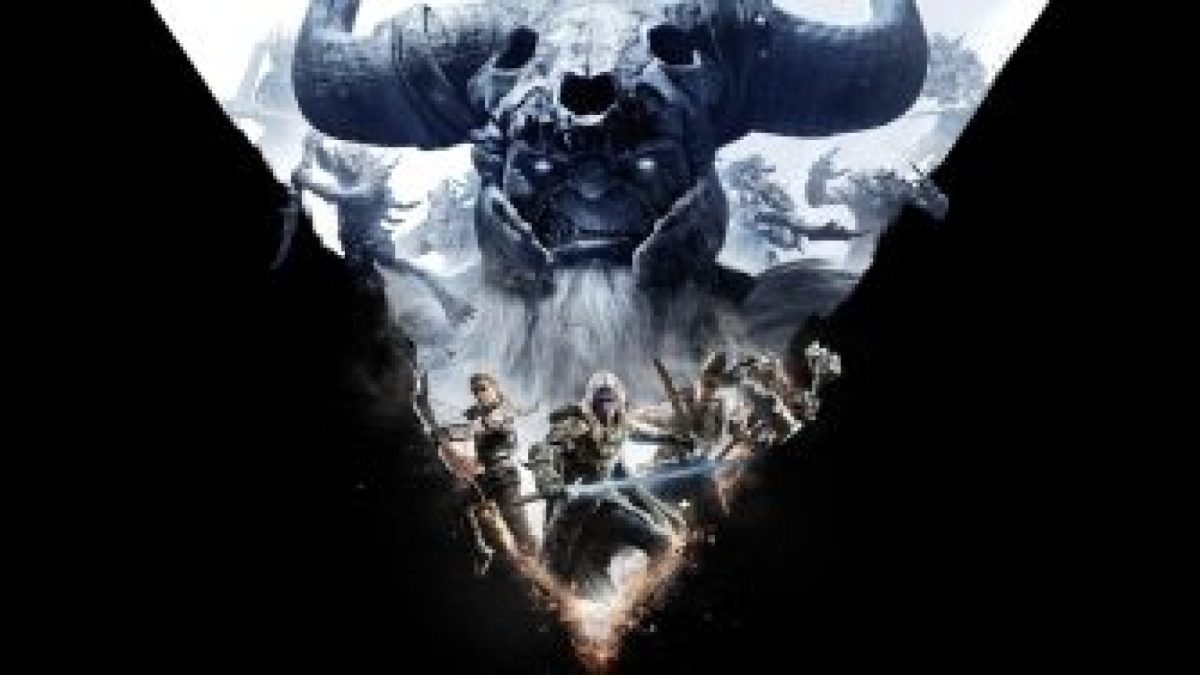
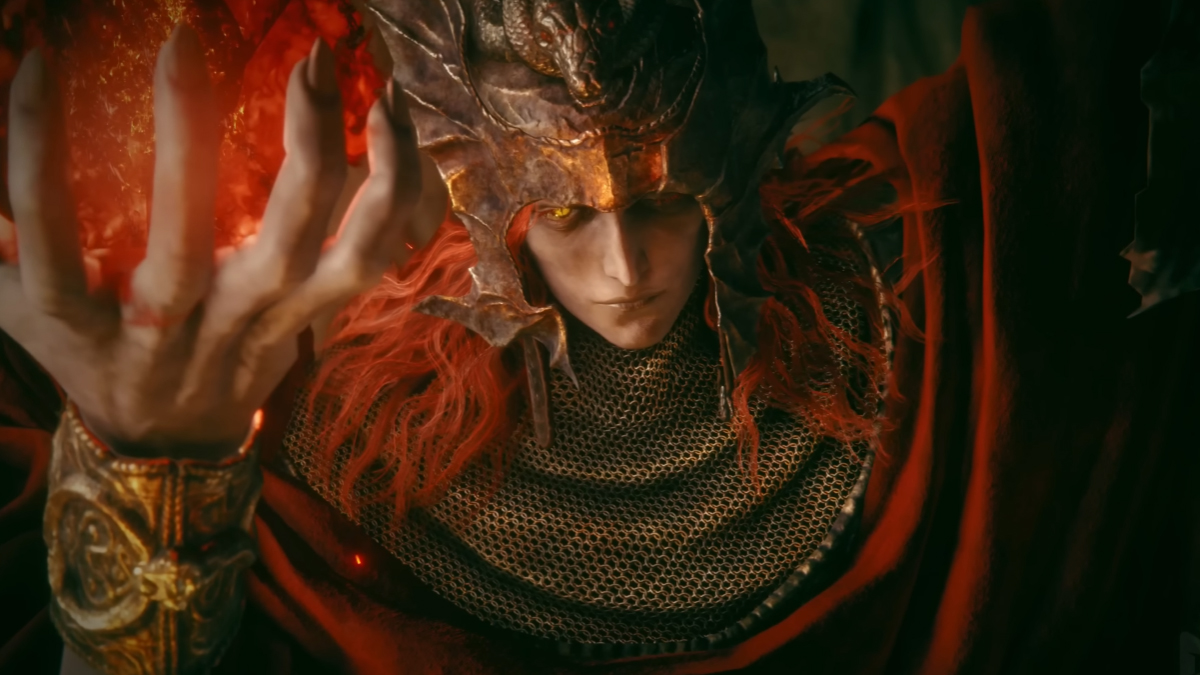



Published: Jun 21, 2021 12:00 pm